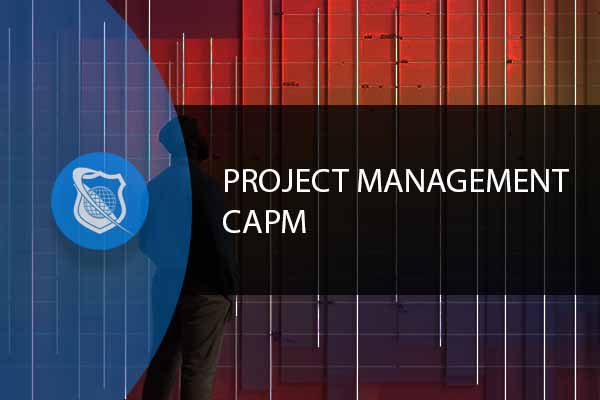The Certified Associate in Project Management (CAPM) is a credential offered by the Project Management Institute (PMI) that signifies an individual’s understanding of the fundamental knowledge, terminology, and processes of effective project management. This certification is designed for those with little to no project experience, making it an excellent starting point for individuals looking to establish a career in project management. It demonstrates to employers that the holder possesses the knowledge necessary to contribute to projects from inception to completion.
Associated Exams
- Format: Multiple-choice
- Number of Questions: 150
- Duration: 3 hours
- Delivery: Computer-based testing (CBT) or paper-based testing (PBT) depending on location
- Prerequisites: Secondary degree (high school diploma, associate’s degree, or the global equivalent) and 1,500 hours of project experience or 23 hours of project management education.
Exam Costs
- PMI Members: $225 USD
- Non-members: $300 USD
Exam Objectives
- Introduction to Project Management
- Project Environment
- Role of the Project Manager
- Project Integration Management
- Project Scope Management
- Project Schedule Management
- Project Cost Management
- Project Quality Management
- Project Resource Management
- Project Communication Management
- Project Risk Management
- Project Procurement Management
- Project Stakeholder Management
Frequently Asked Questions Related to Certified Associate in Project Management
Who should apply for the CAPM certification?
Individuals with little to no project experience who wish to start a career in project management or enhance their project management skills.
How long is the CAPM certification valid?
The CAPM certification is valid for five years. After this period, individuals must retake the exam to maintain their certification.
What are the benefits of obtaining the CAPM certification?
Gaining the CAPM certification can enhance an individual’s credibility and effectiveness working on or with project teams, in addition to potentially opening up new job opportunities and higher salary prospects.
Is CAPM worth it for project managers?
Yes, the CAPM certification is especially beneficial for those entering the field of project management as it provides a strong foundation of project management processes and terminology.
How can I prepare for the CAPM exam?
Preparation can include studying the PMBOK® Guide, taking CAPM training courses, reviewing exam outlines, and practicing with CAPM exam simulators.

CAPM Training
Dreaming of a thriving career in project management? Our Certified Associate Project Management (CAPM®) Online Course is the key to unlocking your potential. With the prestigious CAPM® certification, you’ll open doors to endless opportunities and success.
Key Term Knowledge Base: Key Terms Related to Certified Associate in Project Management (CAPM)
The Certified Associate in Project Management (CAPM) is a valuable entry-level certification for individuals stepping into the project management field. It signifies that the holder understands the fundamental knowledge, terminology, and processes of effective project management. Familiarizing yourself with the key terms associated with the CAPM certification is crucial for those preparing for the exam, aspiring project managers, and professionals seeking to ensure effective communication and understanding within project teams. This knowledge not only aids in certification preparation but also enhances the ability to apply project management practices in real-world scenarios.
| Term | Definition |
|---|---|
| 1. Project Management | The application of knowledge, skills, tools, and techniques to project activities to meet the project requirements. |
| 2. Project Lifecycle | The series of phases that a project goes through from its initiation to its closure. |
| 3. Project Stakeholder | An individual, group, or organization who may affect, be affected by, or perceive themselves to be affected by a decision, activity, or outcome of a project. |
| 4. Scope Management | The process of defining and controlling what is included and what is not included in a project. |
| 5. Time Management | Includes the processes required to manage the timely completion of a project. |
| 6. Cost Management | The process of planning and controlling the budget of a project. |
| 7. Quality Management | The process of determining quality policies, objectives, and responsibilities so that the project will satisfy the needs for which it was undertaken. |
| 8. Human Resource Management | Involves organizing, managing, and leading the project team. |
| 9. Communications Management | The process of planning, implementing, monitoring, and revising all channels of communication within the project team and with stakeholders. |
| 10. Risk Management | The process of identifying, analyzing, and responding to project risks. |
| 11. Procurement Management | The process of purchasing or acquiring products, services, or results needed from outside the project team. |
| 12. Stakeholder Engagement | The process of engaging stakeholders in a project such that they understand project goals, deliverables, and benefits, as well as their role within the project. |
| 13. Project Charter | A document issued by the project initiator or sponsor that formally authorizes the existence of a project, and provides the project manager with the authority to apply organizational resources to project activities. |
| 14. Work Breakdown Structure (WBS) | A hierarchical decomposition of the total scope of work to be carried out by the project team to accomplish the project objectives and create the required deliverables. |
| 15. Critical Path Method (CPM) | A step-by-step project management technique to identify activities on the critical path. It is an approach used to estimate the minimum project duration and determine the amount of scheduling flexibility on the logical network paths within the schedule. |
| 16. Earned Value Management (EVM) | A project management technique for measuring project performance and progress in an objective manner. |
| 17. Gantt Chart | A type of bar chart that illustrates a project schedule. It shows the start and finish dates of the various elements and summary elements of a project. |
| 18. Project Scope Statement | Part of the project management plan that documents the scope management plan and its associated activities. |
| 19. Resource Leveling | A technique in project management that seeks to smooth out the resource usage by minimizing the period-by-period variations in resource loading by shifting tasks within their slack allowances. |
| 20. PMBOK Guide | A guide to the Project Management Body of Knowledge, published by the Project Management Institute (PMI), which provides guidelines, rules, and characteristics for project management. |
| 21. Agile Methodology | A type of project management process, mainly used for software development, where demands and solutions evolve through the collaborative effort of self-organizing and cross-functional teams and their customers/end users. |
| 22. Change Management | The process, tools, and techniques to manage the people side of change to achieve the required outcomes of a project or initiative. |
| 23. Project Sponsor | An individual or a group who provides resources and support for the project, program, or portfolio and is accountable for enabling success. |
| 24. Baseline | The approved version of a work product that can be changed only through formal change control procedures and is used as a basis for comparison. |
| 25. Stakeholder Analysis | The technique of identifying the key people who have to be won over and kept engaged in a project. |
These terms represent the foundational knowledge every CAPM certification aspirant should be familiar with, offering a comprehensive overview of the essential aspects of project management.
















